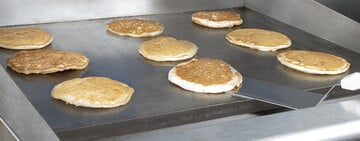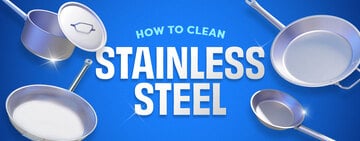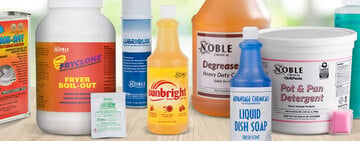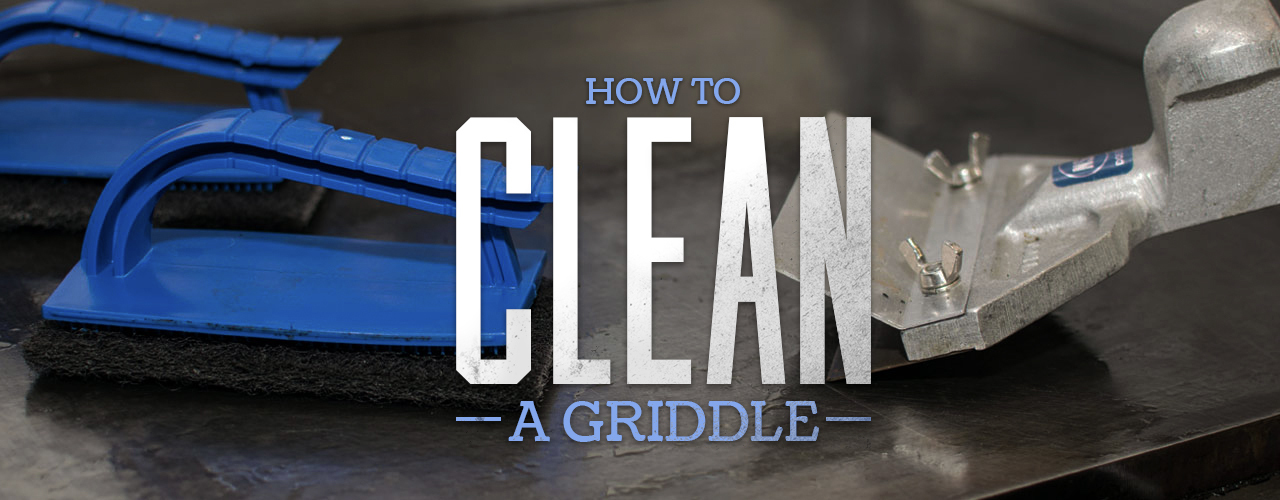
One of the best ways you can make your menu more diverse and appealing is by outfitting your kitchen with a commercial griddle. Whether you use it once a week or every day, it's very important to take care of your griddle to maintain cooking efficiency and prevent flavor transfer. Since there are many different ways you can go about cleaning a griddle, we've provided you with some general tips and guidelines to follow, so you can continue to produce delicious meals for your customers.
Shop All Griddle CleanerHow to Clean a Griddle Video
If you've never cleaned a commercial griddle, we've created a video that goes through the entire process. Watch the video below to see an example of what it looks like to clean a griddle:
Cleaning a Griddle
Though there are some key differences between them, the process of cleaning a griddle can be compared to cleaning a commercial grill. In general, there are two different types of griddles: those with a chromium cooking surface and those without a chromium surface. Each type presents its own set of benefits that distinguish it from the other. Continue reading to learn how to clean your commercial griddle.
Cleaning Chromium Surfaces
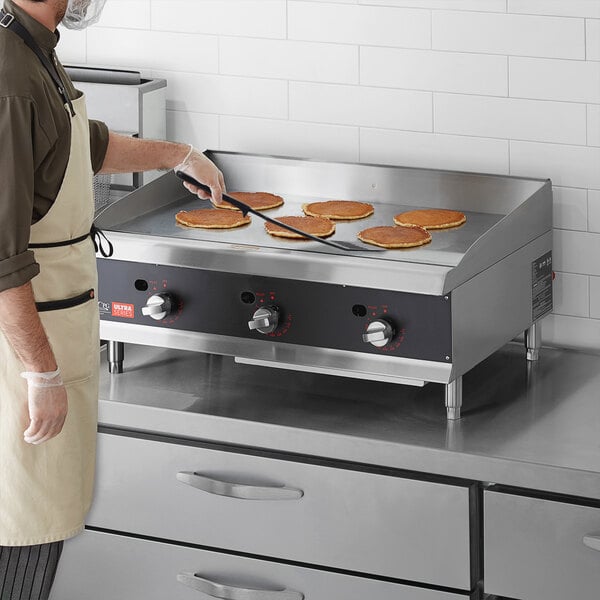
Chromium metal is a transition metal made of chromium, one of the elements found on the periodic table. Known for its high corrosion resistance, it is often used when creating different cooking surfaces and appliances. In griddles, chromium is known for providing superior heat retention, which helps to conserve energy. To clean a chrome griddle, follow these steps:
- Remove food: Use a scraper to remove excess grease and food. You can easily scrape debris into the griddle's waste drawer and empty it once you're finished.
- Wipe: If desired, wipe the surface with a damp cloth.
- Scrape: At the end of every day, scrape the surface as you do in the first step, and then using a clean rag, clean the surface with a mixture of mild soap and water.
- Polish and maintain: Thoroughly wipe down the surface with a different wet cloth, polish the unit's front, and empty the waste drawer.
What to Avoid When Cleaning Chromium Surfaces
To avoid damaging or scratching your griddle, never use the following products when cleaning chromium surfaces:
- Pumice, griddle stones, or abrasives
- A sharp instrument or spatula edge to remove food
- Steel wool
- Commercial liquid grill cleaner
Cleaning Non-Chromium Surfaces
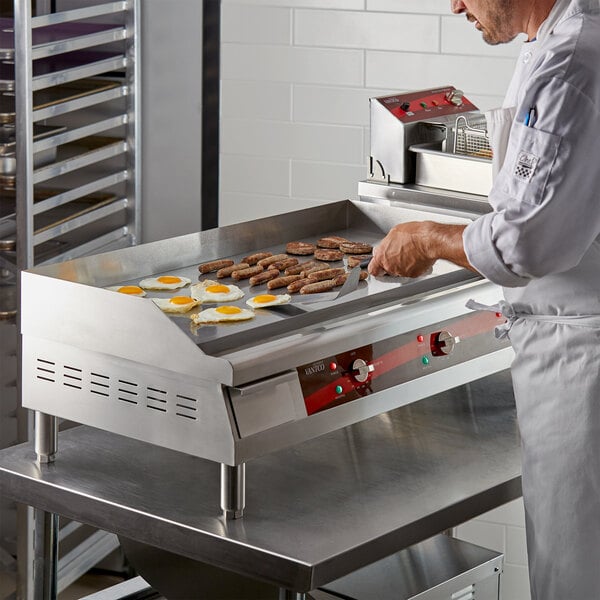
Unlike their chromium counterparts, non-chromium surfaces require a different cleaning process. You’ll also have more freedom to use different products or equipment while cleaning them. To clean a non-chromium surface, adhere to the steps listed below:
- Scrape: Use a grill scraper after every use to remove excess grease and food.
- Remove excess debris: If the griddle is extremely soiled, use a griddle or grill brick while the surface is still warm to gently rub off caked-on grease and food. Make sure you rub in the direction of the grain so you don't ruin the steel surface.
- Sanitize wash drawer: At the end of every day, or sooner if needed, you should also empty, wash, and sanitize your waste drawer. Then, polish the front of the griddle with a clean cloth.
- Clean surface: Once a week, unplug the unit and allow the griddle to cool completely. Use a fresh cleaning cloth and a non-abrasive griddle cleaner to clean the surface, and then thoroughly rinse with water.
- Season: After cleaning your griddle, you may need to re-season the surface depending on how often the griddle requires a heavy cleaning. Otherwise, apply a thin layer of cooking oil to help prevent rusting.
Why Cleaning a Griddle Is Important
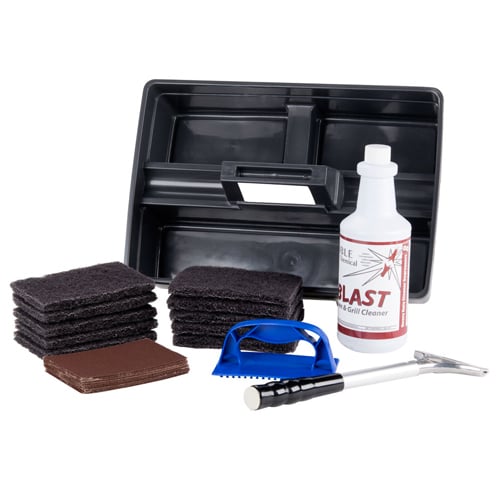
Whether you're cooking pancakes and crepes or burgers, sandwiches, and meats, it's important to clean and scrape your commercial griddle regularly. When you cook any meal, fats, juices, and other food debris will be left on the griddle's surface. If this grease and grime isn't cleaned off, it will continually accumulate into a gummy layer which will then carbonize into a hard substance that's extremely difficult to remove. If you continue to cook on this surface, heat won't transfer as evenly and efficiently to the food being cooked, and it could cause the chicken being served at dinner to taste like the cheesesteak that was cooked at lunch.
How Often Should I Clean My Griddle?
In general, you should clean your griddle after each use. Additionally, you should make sure that it is clear of any dust, debris, or other substances before you begin cooking. This helps to reduce the risk of illness, contamination, and other hazards in your food.
Whether you own a stainless steel griddle, a cast iron griddle, or a ceramic griddle, it's important to take care of it to ensure efficient cooking. By regularly cleaning your griddle after every use in addition to performing routine weekly deep cleanings, you'll be able to keep your unit in top operating condition for years to come.



